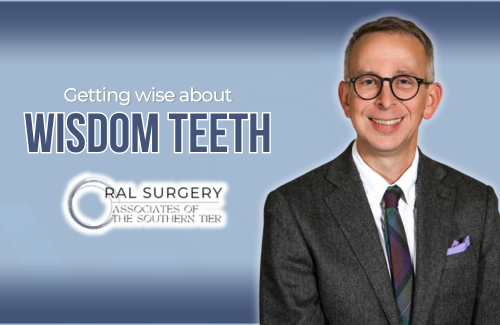As parents, we always have our children’s best interests at heart. Part of this involves ensuring that their oral health is addressed from their earliest years throughout adolescence. One common concern that we face with teens is the appearance of their wisdom teeth.
Wisdom teeth, also known as third molars, usually grow in the late teenage years or early twenties. They can cause multiple dental issues from gum disease to damage adjacent to teeth. Wisdom teeth extraction can help prevent these serious dental issues and alleviate the pain and discomfort caused by the growth of these molars.
Review this month’s blog for further insights into how to protect your teen’s oral health and prevent possible dental issues from wisdom teeth.
GUM DISEASE
Gum disease or periodontal disease can be a sign that your teen’s wisdom teeth need to be extracted. Due to the location in the back of the mouth, wisdom teeth can be difficult to brush and floss properly, resulting in plaque and bacteria build-up. This can lead to gum disease, which can cause inflammation, bleeding, and tenderness of the gums.
If left untreated, gum disease can lead to serious oral health issues and even tooth loss. Removing the wisdom teeth can help prevent further progression of gum disease and restore oral health.
CROWDING TEETH
Wisdom teeth are notorious for causing crowding and shifting of other teeth. Crowding teeth can make it difficult to chew and cause jaw pain. In addition, the pressure may cause damage to adjacent teeth. This can lead to dental issues such as tooth decay and gum disease. From an aesthetic perspective, any orthodontic work completed to straighten your teen’s teeth may be in jeopardy from the crowding. If you notice your teen’s teeth shifting, it is best to consult with their dentist to determine whether wisdom teeth extraction is necessary.
IMPACTED WISDOM TEETH
Impacted wisdom teeth occur when the teeth fail to emerge from the gum line fully. This can cause pain, swelling, and infection in the surrounding area. Impacted wisdom teeth can also lead to the formation of cysts or tumors in the mouth. If left untreated, these can cause damage to the surrounding teeth, gums, or even the jawbone. Extraction of the wisdom teeth is necessary to prevent further complications.
PAIN and DISCOMFORT
One of the most common signs that wisdom teeth need to be extracted is pain and discomfort. Pain may be felt at the back of the mouth, often radiating to the ears or jaw. Discomfort can also occur when opening the mouth or chewing. If your teen experiences persistent pain or discomfort in the back of their mouth, it is essential to have them examined by a dentist.
INFECTIONS
Infections can occur when bacteria accumulate in the gum tissue surrounding the partially emerged wisdom teeth. This condition is known as pericoronitis and can cause severe pain, swelling, and fever. If your teen experiences any of these symptoms, schedule a dental visit immediately. Your dentist may recommend immediate extraction of the wisdom teeth to prevent the infection from spreading and causing further complications.
While wisdom teeth are a normal part of development, they can cause serious dental issues if left untreated. Remember to schedule regular dental check-ups for your teen. This one step may be the proactive step needed to keep wisdom teeth in check, as your dentist can often provide advance notice of their arrival.
Wisdom teeth extraction is a common and safe procedure that can prevent serious dental issues and alleviate the pain and discomfort caused by these molars’ growth. If you suspect that your teen is experiencing wisdom tooth-related issues, or want to proactively address future concerns, contact our office. Dr. Mark Dreher is ready help ensure that your teen’s smile remains healthy and beautiful.

